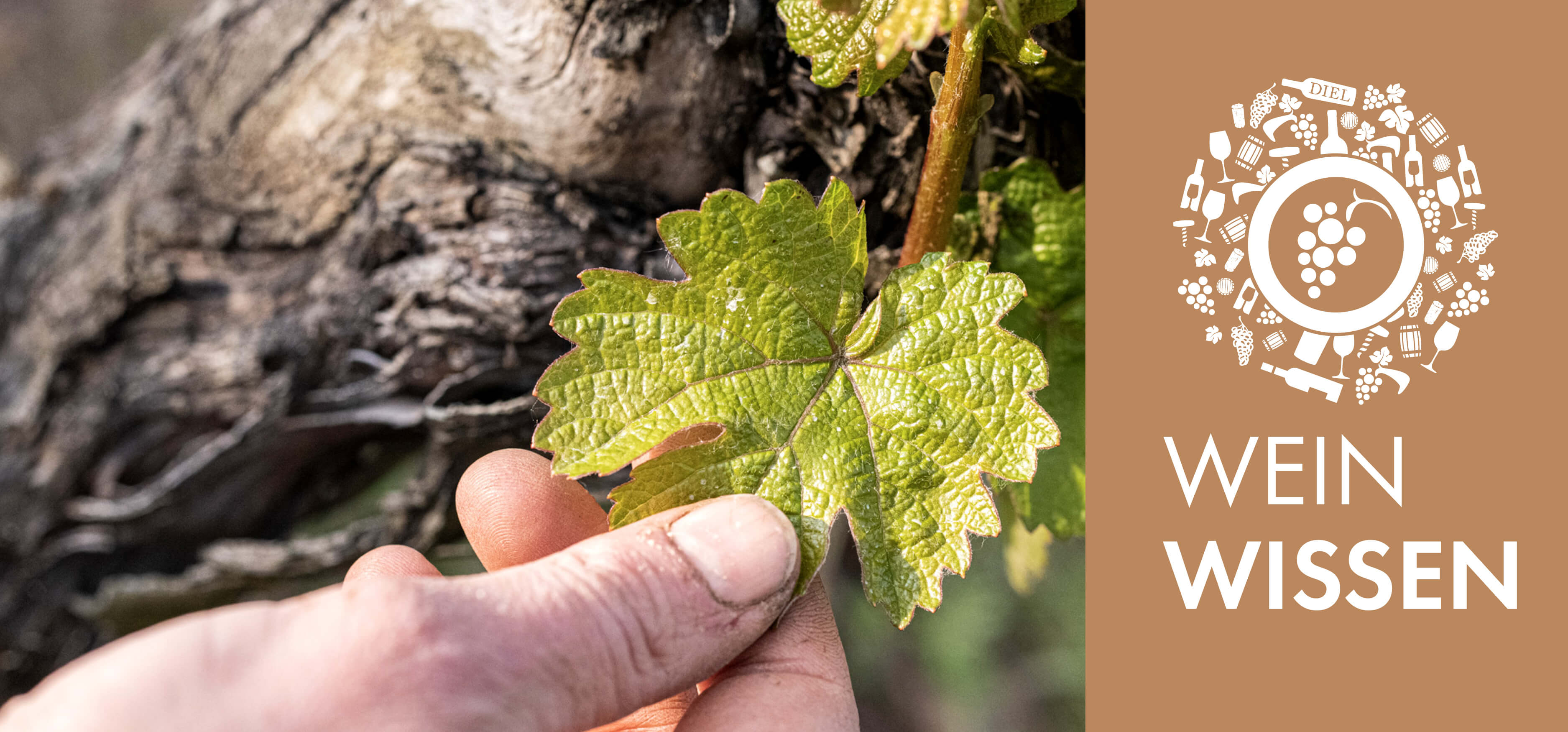wine knowledge
“As befits an estate with a long and esteemed history, Schlossgut Diel cultivates some vines upwards of 80 years old.”
Caroline Diel
old vines

The benefits of age!
Alte Reben—and by this we mean grapevines 30 years and older—are the cherry on top for quality winegrowers. Under the right conditions, they are capable of producing fruit of tremendous ripening potential, depth, and precision. The kind of grapes that deliver world-class wines. As befits an estate with a long and esteemed history, Schlossgut Diel cultivates some vines upwards of 80 years old. Their roots reach four meters deep into the soil, ensuring a sufficient supply of water and nutrients even in dry summers. Those same deep roots also allow the vines to draw more fully on the site’s terroir, shaping the taste of the grapes. Diel wines produced from old vines tend to be nuanced, tremendously complex, elegant, and shaped by an especially refined and silky texture. Not only do they taste superior to wines from young vines, but bottles from old vines are also more likely to benefit from bottle maturation.
Old or young vines? A decision to pursue quality, not quantity!
The decision to cultivate old or young vines often reflects economic concerns. As vines age, they tend to require more time and expense. They also produce smaller yields and, especially as they advance in age, sometimes produce no fruit at all. Those interested in high quantities and high yields will be poorly served by old vines. They require dedication, hands-on care, and real know-how. Perhaps most daunting: simply having old vines is not in and of itself a guarantee for extraordinary quality, as not every vine is suitable for cultivation at an advanced age.